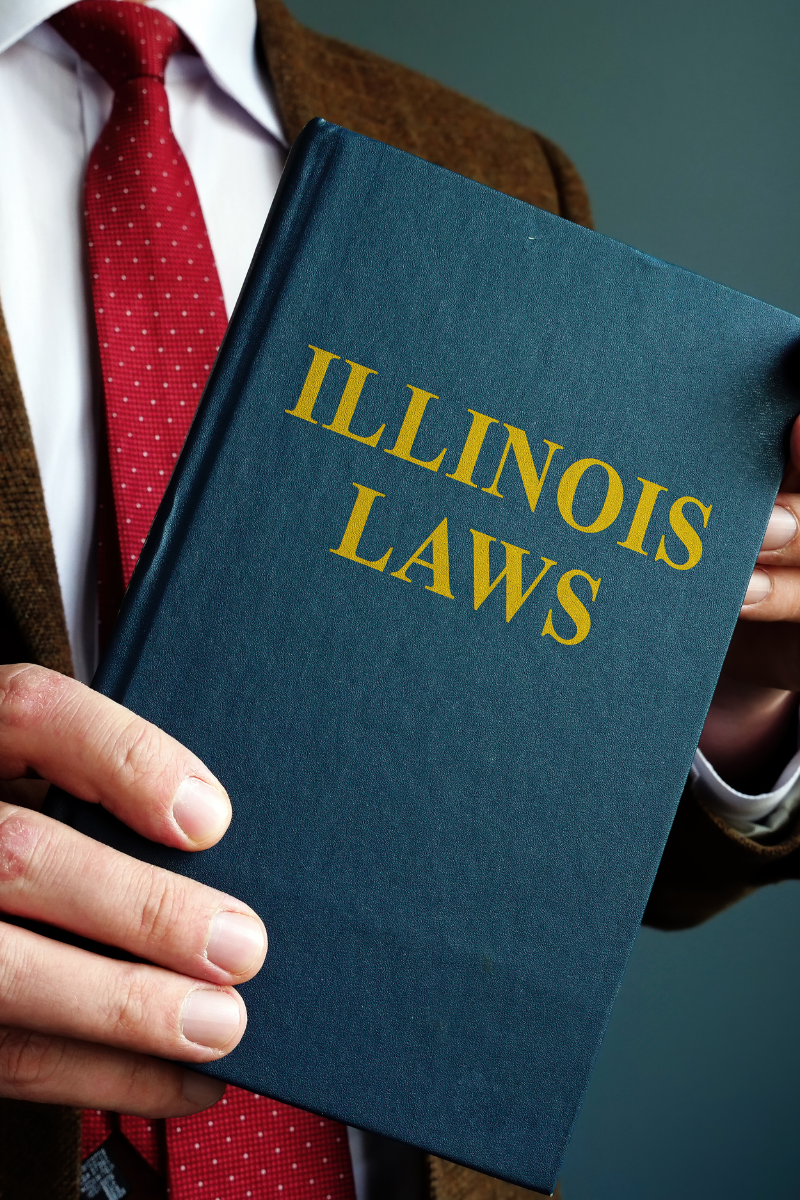Allocation of Parental Responsibilities: What Illinois Parents Need to Know in 2025
When families go through a divorce or separation, one of the most pressing and emotionally charged issues is determining the allocation of parental responsibilities.
For Illinois parents facing these challenges, understanding the nuances of parental responsibility allocation is essential—not just for legal compliance but to help ensure the well-being of their children. Whether navigating a cooperative parenting plan or preparing for court proceedings, having clarity on the laws governing parental responsibilities in Illinois can make a significant difference. This blog will walk you through what parents need to know in 2025, offering insights to help you approach this process with confidence and compassion.
Understanding the Basics of Parental Responsibilities in Illinois 
Illinois family law underwent significant changes in 2016 when the Illinois Marriage and Dissolution of Marriage Act (IMDMA) was amended to replace terms like “custody” and “visitation” with “allocation of parental responsibilities” and “parenting time.” This shift reflects the court’s focus on the child’s best interests and helps emphasize parental collaboration. Let’s look at parental responsibilities and their two main components.
1. Decision-Making Responsibilities
Decision-making responsibilities involve critical choices that affect the child’s well-being. These are typically divided into four key categories:
- Education: Deciding on schools, special education programs, tutoring, or learning support services.
- Healthcare: Managing medical treatments, selecting healthcare providers, and deciding about therapy or health insurance.
- Religion: Determining the child’s upbringing, participation in religious ceremonies, and attendance at places of worship.
- Extracurricular Activities: Choosing activities that support the child’s growth, such as sports, arts programs, or clubs.
The court can allocate these responsibilities in three ways: sole, joint, and shared responsibilities, depending on what arrangement best supports the child’s well-being. Joint decision-marking lets both parents share equal responsibility for making significant decisions about the child’s life. Shared decision-making requires cooperation and communication between parents, while sole responsibility helps ensure that one parent has the authority to make critical decisions independently.
2. Parenting Time
Parenting time refers to the physical time a child spends with each parent and involves day-to-day care, overnight stays, and special occasions like holidays or vacations. The courts aim to create parenting schedules that:
- Minimize Disruptions: The court helps ensure the child’s routine remains consistent, particularly regarding school, extracurricular activities, and social life.
- Promote Relationships: The courts consider parents to maintain meaningful, supportive relationships with their children.
Parenting time schedules can vary widely based on factors like the child’s age, the parents’ availability, and their proximity to each other. Courts encourage flexibility and cooperation in creating these schedules to meet the child’s needs while supporting a healthy co-parenting dynamic.
 Factors Courts Consider When Allocating Parental Responsibilities
Factors Courts Consider When Allocating Parental Responsibilities
Illinois courts prioritize the child’s best interests when determining parental responsibilities. Some of the key factors they consider include:
- The Child’s Needs: Courts examine the child’s unique physical, emotional, and developmental needs. For instance, a child with medical conditions or disabilities may require more stability and specialized care, influencing the allocation.
- The Parents’ Wishes: The court acknowledges each parent’s preferences, which are weighed against practical considerations like work schedules, geographic proximity, and the ability to fulfill the child’s needs.
- The Child’s Wishes: While younger children may not have the maturity to express valid preferences, older children—typically teenagers—may have their opinions considered.
- Parent-Child Relationships: The strength and quality of each parent’s relationship with the child play a vital role. For example, courts may assess whether a parent has been the primary caregiver or has a strong emotional bond with the child.
- Health and Well-Being: Mental and physical health are crucial factors. A parent’s history of substance abuse, untreated mental health issues, or physical ailments affecting their caregiving ability can influence decisions.
- Willingness to Cooperate:
A parent’s ability to work collaboratively with the other parent, prioritize the child’s needs over personal conflicts, and foster a positive co-parenting dynamic is heavily considered. - History of Abuse or Neglect:
Any documented history of domestic violence, abuse, or neglect will weigh against the offending parent. The court’s priority is the child’s safety.
Creating a Parenting Plan 
In Illinois, divorcing or separating parents must submit a parenting plan within 120 days of initiating the case. This document outlines how parental responsibilities and parenting time will be shared or divided. Key components of a parenting plan include:
- Allocation of Decision-Making Responsibilities: Specify whether decisions about education, healthcare, religion, and extracurricular activities will be made jointly or by one parent.
- Parenting Time Schedule: Detail where the child will reside on weekdays, weekends, and holidays, as well as arrangements for vacations and special occasions.
- Transportation Arrangements: Determine who will handle pick-ups and drop-offs, including contingencies for emergencies or conflicts.
- Communication Guidelines: Outline how parents communicate about the child (e.g., through email, co-parenting apps, or regular meetings).
- Dispute Resolution: Include provisions for mediation or other conflict resolution methods in case disagreements arise.
Mediation and Resolving Disputes
Illinois courts often mandate mediation when parents disagree on a parenting plan. Mediation allows a neutral third party to facilitate discussions and help parents reach a mutually acceptable agreement. Here are some advantages of mediation:
- It is generally less expensive than court litigation.
- It fosters a collaborative environment rather than an adversarial one.
- It often leads to solutions more tailored to the family’s unique needs.
If mediation fails, the court will make a final decision that might not align with either parent’s preferences. Working alongside a trusted family law mediator can help you navigate this difficult time.
Modifying Parental Responsibilities
Life is dynamic, and circumstances affecting parenting arrangements can change. Illinois law allows for modifications to parental responsibilities if a substantial change in circumstances occurs. Examples include:
- A parent relocating for a new job.
- Changes in a child’s educational or medical needs.
- Evidence of a parent failing to adhere to the parenting plan or endangering the child.
The parent requesting the modification must prove that the changes serve the child’s best interests. Working alongside a trusted family law attorney can help you modify or create your parenting plan.
How Masters Law Group Can Help 
At Masters Law Group, we are dedicated to helping families find solutions that reduce stress, minimize conflict, and help provide the best possible outcomes for children. Our attorneys bring years of experience in family law and are well-versed in Illinois family laws. Whether through mediation or litigation, we are committed to supporting you every step of the way by providing:
- Empathy and Understanding: We recognize the emotional toll family disputes take and provide compassionate guidance.
- Experience in Family Law: Our team stays updated with Illinois family law developments to provide accurate, effective representation.
- Child-Focused Solutions: Our family law attorneys help ensure your child’s best interests are met.
- Clear Communication: We keep you informed throughout the process, explaining every step and option.
Final Thoughts
The allocation of parental responsibilities is a critical component of family law in Illinois, helping ensure your children’s best interests remain at the forefront of any decision. By understanding your rights and responsibilities, collaborating on a detailed parenting plan, and seeking legal guidance, parents can create a stable and supportive environment for their children during and after a divorce.
If you’re facing challenges navigating parental responsibilities, our team is here to help you create a path forward. Contact us today to schedule a consultation and start building a brighter future for your family.
FAQ: Allocation of Parental Responsibilities in Illinois
What happens if one parent refuses to follow the Parenting Plan?
If a parent violates the parenting plan, the other parent can file a motion with the court. Remedies may include make-up parenting time, fines, or adjustments to the existing plan.
Can parental responsibilities be split unevenly?
If one parent is better equipped to handle certain parental responsibilities, such as medical decisions, the court may allocate those duties to that parent while assigning others, like educational decisions, to the other parent.
Are fathers and mothers treated equally under Illinois law?
Yes. Illinois law does not favor one parent based on gender. Decisions are based on the child’s best interests, not parental roles.
Can a Parenting Plan include provisions for virtual parenting time?
Virtual parenting time (e.g., video calls) can be included, especially when physical distance makes regular in-person visits challenging.
What is the process for modifying a Parenting Plan?
File a petition with the court detailing the substantial change in circumstances and why the modification is in the child’s best interests.












